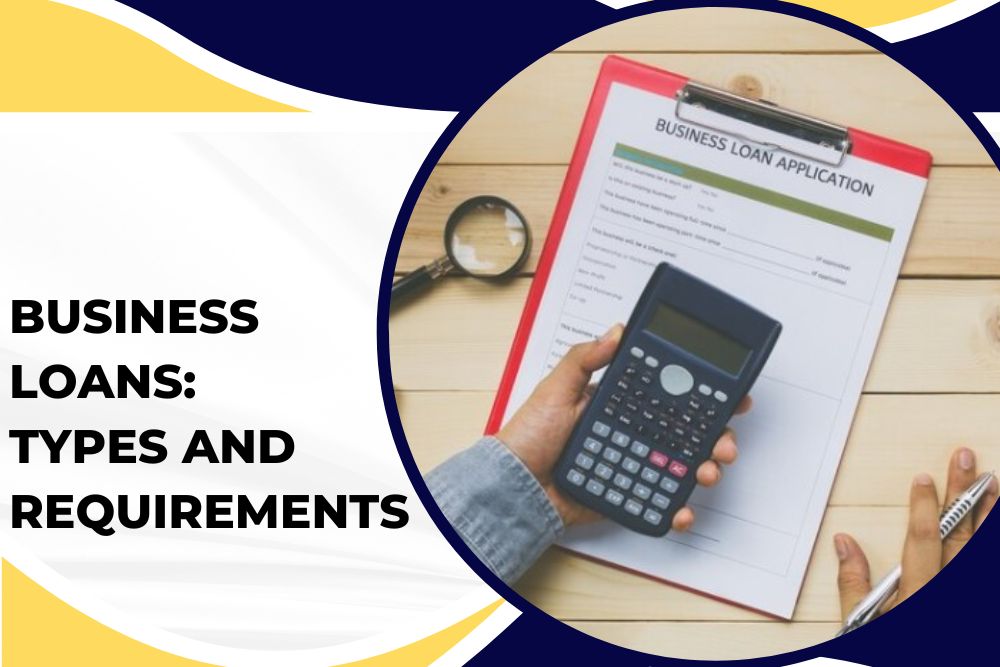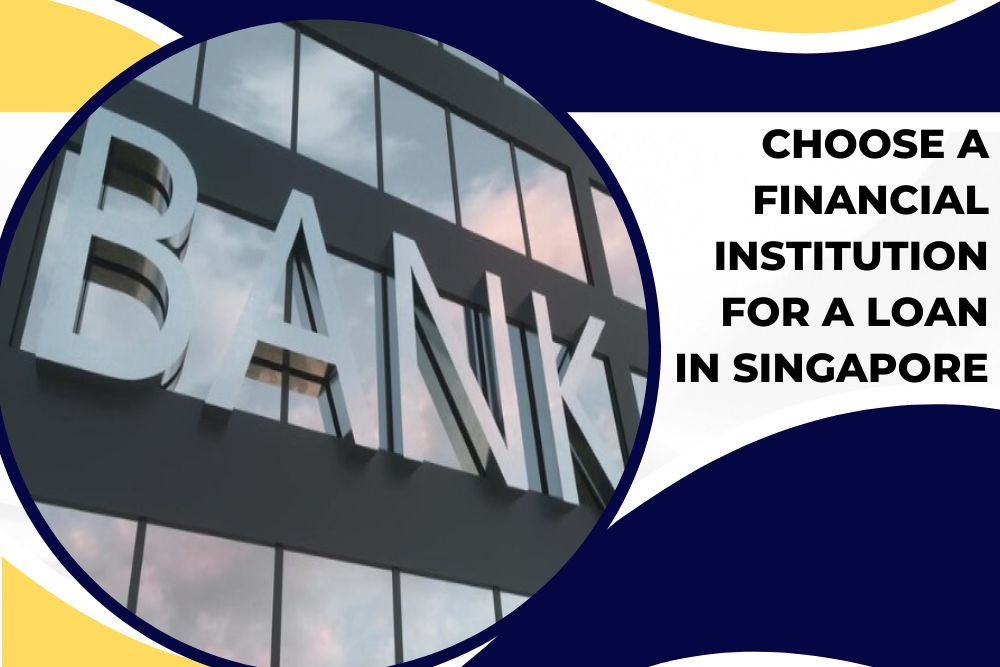10 Reliable Financing Companies in Singapore for Business Loans and Commercial Property Loans
A loan covers unexpected expenses, builds good credit history, facilitates additional operating costs, and funds purchases. A business loan can help you start a new project, grow your business, or purchase new equipment.
Singapore boasts several financial institutions, lenders, and reputable banks that offer different types of loan schemes for businesses. This article discusses these loans and how to look for options and repayments terms that best fit your needs.
Apply for a commercial loan today with one of our highly-recommended financial institutions in Singapore.
How to Select Loan Services That Assure Access to Capital for Business Investment
To ensure the success of small and medium-sized businesses, they need enough startup capital. As a business owner, you need to have enough money to sustain your organisation. In Singapore, more than 65% of the economy is composed of SMEs, according to an article by The Straits Times from 2019. With such high saturation of competitors in different markets, it is highly challenging to grow your business in Singapore.
SMEs contend with cutthroat competition and expensive rental and operational costs. Therefore, taking out a business loan is commonplace for SMEs in Singapore. Fortunately, many types of business loans are available, such as working capital loans, entrepreneurship loans, and more. However, you should know that different money lending companies will have additional terms and conditions.

Importance of Business Loans
For entrepreneurs, business loans are an important stepping stone to expanding their business. Some of the most successful companies in the world owe their growth to business loans they got at the right time of their business cycle.
Small and medium-sized enterprise (SME) business owners will most likely require financing at some point in their business journey. Business loans can help expand operations, fund commercial property rental, plug working capital gaps, and finance inventory purchases.
Just like personal loans, there are different types of loans available for commercial purposes, which is why it is important to understand the benefits of each loan before making a decision. The following are the benefits of taking out a loan:
Provide Opportunities
The most common reason for considering a loan is to invest in an expansion opportunity for your business. If your business is doing well, continuing to grow can help maintain or increase profits. But growth has numerous costs that cash flow might not cover, such as advertising, new property, renovations and more staff. In this case you may have to take out a loan.
A loan can cover the costs of expanding your business, so you don't have to dip into operational funds. This means you can keep impressing customers while growing your company.
Expand Operations
If your business is expanding and you're considering a new location, you may need to seek out a real estate loan from the bank. This type of loan is usually in the form of a mortgage. Banks will view your application more favorably if your business is turning a profit, has positive cash flow numbers, and good forecasting for the future.
Long-term bank loans are excellent for companies that have assets to collateralise the loan. Repayment terms for these types of loans can be quarterly or monthly and may run from three to 25 years. As with any loan, there will be an interest rate associated with long-term bank loans.
Create Financial Stability
For businesses, loans are needed to finance additional retail transactions that help build credit history. Business loans can also help you to grow your company and achieve financial stability.
Working capital is the money used to manage day-to-day business operations and it's essential to maintaining positive cash flow. To satisfy operational costs, small businesses may take out a loan until their earnings reach a certain volume. If the debtor has good credit and a solid business plan, banks can offer short-term loans for businesses to get off the ground and grow. Interest rates for working capital loans are higher than real estate loans because banks see them as a greater risk.
Build Credit
Loans are an excellent way of enhancing your credit. By taking out a loan, you're essentially borrowing cash that will need to be repaid over time. As long as you make your monthly repayments on schedule, your credit ranking will go up, making it simpler for you to borrow money down the road. If at some point in the future you anticipate requiring a large loan for business expansion or new equipment, it might be advantageous to take out a smaller loan first; this is particularly true if your business does not have any existing credit history.
While you shouldn't take on debt unnecessarily, there comes a time in every small business' life when a loan is exactly what's needed to continue functioning or generate more revenue. For your first loan, purchase something small that will make day-to-day operations easier---but nothing too expensive. This way, when it's time to buy something big, you'll have good credit backing you up and capsizing rates.
Replace or Upgrade Equipment
If your business needs expensive equipment to function, business loans can help you replace it when it becomes old, or buy pieces of equipment you might be missing. Equipment bought for the company can be sold at a lower price when it's no longer useful instead of being thrown away. Determine whether it would save money in the long run to buy or lease equipment by doing a cost-benefit analysis.
All businesses need equipment to function properly---machinery for the business itself or a treadmill for customers' use, for example. But most equipment are expensive, and sustaining damage over time is inevitable. Emergency expenses to repair or replace damaged equipment can really mess up your budget; sometimes running the risk of using broken machinery isn't worth it. Also, faulty equipment attracts legal trouble and drives away potential customers in droves, costing even more money eventually.
Purchase Inventory
If you have a product-based business, then buying inventory is an essential cost. There may come times when you'd like to buy ahead of the busy season (such as holidays) or snag some discounted items, and in those cases taking out a loan can help ease the financial burden. Business loans of this variety are usually paid back in under a year's time, so it's crucial that explore your options and compare rates between lenders before making any decisions.
There are a few ways to build trust with your bank, including making payments on time and holding a positive balance in your checking or savings account. It's important to keep in mind that most bank loans for inventory purchases are designed to be short-term, so you'll want to come up with a strategy for repaying them quickly. This could include using the proceeds from seasonal sales.

Business Loans: Types and Requirements
There are various types of business loans available in Singapore, but certain businesses will qualify for more than others. Though it differs for every loan and lending institution, most loans will require some form of collateral from the applicant in order to be assessed for eligibility.
In addition, various requirements and guidelines must be followed when applying for a business loan in Singapore; it's essential to determine if you are eligible.
- Government-Assisted Business Loan Schemes
The government-assisted business loans schemes were created in 2020 to help businesses during the COVID-19 pandemic. These loans are attractive to small businesses because the government will share up to 70% of the risk.
These are the three main credit facilities:
- Enterprise Financing Scheme - SME Working Capital Loan
- Maximum loan quantum $500,000
- Government risk-share of 50% to 70%
- Only available for SMEs
2. Enterprise Financing Scheme - Trade Loan
- Maximum loan quantum of $5 million
- Government risk-share of 70%
3. Temporary Bridging Loan Programme
- Maximum loan quantum of $1 million
- Government risk-share of 70%
Financial institutions will comprehensively assess a company based on past financial performance, as well as current and previous bank statement records. They will also take into account the guarantors’ personal credit histories.
The Temporary Bridging Loan Programme and Working Capital Loan are unsecured business loans; therefore, their structures will be similar to that of an unsecured business term loan.
- Unsecured Business Term Loan
Unsecured business term loans are not backed by physical collateral, like property or equipment. Instead, they're supported by the company directors’ personal guarantees.
Businesses often turn to loans to cover various expenses, big or small. These types of financing are popular among small businesses because they offer more flexibility than other options. Loans can be used for regular purchases such as inventory and payroll, or to finance larger plans such as leasing a new retail outlet.
When financial institutions are considering approving a company for a loan, they will take several factors into account, including the company's past financial performance and current bank statement records. Furthermore, they will check the guarantors' personal credit records. The average unsecured business term loan can finance up to $500,000 with a 1 to 5 year repayment plan. The interest rates generally fall between 7% to 12% annually along with administration fees which are about 1% to 5% of the approved loan amount.
Most unsecured business term loans adhere to the "Principal Loan Amount + Interest" repayment structure, though in some exceptional cases these term loans may have an "Interest Servicing Only + Bullet Repayment" pattern. Keep in mind that terms (e.g., loan amount, length of borrowing period), fees, and repayment schedules differ between lenders. It's essential to select an unsecured business term loan from a reputable provider that meets both your monetary needs and budgetary constraints.
- Merchant Cash Advance
Merchant Cash Advance (MCA) is a type of financing that is only available to retail or Food and Beverage businesses that use credit card terminals.
The main evaluation criterion for an MCA facility is the SME’s credit card transactions over the last 6 months. The financials, profitability, and guarantors of the SME will play a smaller role in the decision-making process and will be evaluated only if the SME requests for a larger-than-usual loan amount.
MCA first establishes the advance amount (loan quantum) by averaging the monthly credit card transaction from the previous 6 months and multiplying that number 1.5 to 4 times. Thereafter, they will give this loan amount to SME at facility's start with a repayment period of 6 to 9 months while tacking on interests.
The financial institution will open a new joint bank account with the SME for the purpose of holding all credit card transactions. If you can't repay your credit card transactions in full each month, the financial institution will charge you interest on the unpaid balance. However, if you make at least the minimum repayment by the due date shown on your statement, no interest will be charged for that period.
- Invoice Financing
When an SME takes out a loan using invoices as collateral, the main thing banks look at is the financial stability of the company's customers. Companies with government or multinational corporation contracts are usually preferred over those only serving small businesses.
The borrower needs to show a solid track record of successful jobs completed or past transaction history. The profitability and financial performance of the SME will have less weight during the credit evaluation process.
SMEs usually issue invoices to their customers after performing a service or completing a sale. They may use these invoices as collateral while awaiting payment. Once approved for an invoice financing credit line, the SME will be able to draw up to 80% of the invoice value for each invoice until the credit limit has been reached.
The financial institution will receive payment for each invoice directly from the SME's customer after 30 days. The financial institution refunds 20% of the invoice value to the business term loan arrangement. Essentially, this is another form or an unsecured loan.
- Business Overdraft
An unsecured overdraft (OD) facility is viewed as an alternative to business term loans and recommended for SMEs that require short-term working capital, but there is no difference between the evaluation criteria of an unsecured business term loan and an unsecured OD facility. The SME will be evaluated holistically based on past financial performance and current bank statement records, as well as personal credit records of guarantors.
However, the structure of an OD facility is vastly different compared to an unsecured term loan.
An OD facility provides the SME with a line-of-credit instead of a lump sum amount. Interest is only charged on the amount that is used, which allows multiple withdrawals up to the credit limit.
Businesses need only make a small, monthly repayment of 20% instead of one large, fixed amount.
The interest charged is based on the amount of money withdrawn and how often it is used (the daily interest rate).
- Business First Loan
This facility is an unsecured term loan designed for young startups that have been registered and operational in Singapore for 6 months to 2 years. Very few business loans are available to such young companies. Unsecured business term loans generally require financial records to show the company's performance and history, but this is not as emphasised when compared to a typical loan.
The company directors’ (guarantors’) declared incomes and personal credit records are the primary evaluation criteria for this facility. At least one guarantor must have a minimum annual income of $30,000.
An SME may be able to obtain a higher loan amount if there are more than one guarantor, the guarantors have high combined incomes, or the guarantors have good personal credit records.
The Business First loan is the same as the term loan. The difference is that SMEs will get a lump sum at first, and then they will have to make monthly repayments for 4 years maximum.
- Venture Debt Financing
Debt financing for startups that have been backed by venture capitalists has become available in recent years through facilities. This type of unsecured business term loan was created to address the need for funding among startup companies, which are traditionally unable to obtain financing from banks due to their lack of profitability.
When startups apply for this venture debt facility, the financial institution will assess the company based on how much equity funding it was able to obtain from venture investors, as well as its innovative solution and/or business model. However, less weight is placed on factors such as the company's history or financial performance since these entities are not usually profitable. Additionally, the maximum loan quantum that can be taken out under this facility is capped at 30% of all venture capital raised during the most recent equity round.
The venture debt financing loan will be structured similarly to the term loan. SMEs will receive one amount at the beginning and then have equal payments due monthly.

How to Determine if Your Company is Eligible for a Loan
Eligibility for a loan in Singapore matters for many reasons, one of which is the country's strict financial regulations. To be eligible for a loan, your company generally must have a good credit score, meet specific requirements related to assets and net worth, and be solvent.
As of 2022, the basic eligibility criteria in most financial institutions include the following: at least 2 years in operation, at least $300,000 in revenue, 30% shareholding by Singaporeans, and company incorporation.
Additionally, businesses applying for working capital loans or bridging loans must have fewer than 200 employees and annual group sales of less than $100 million. Various other factors may affect your application for a loan, including the amount of debt your business has already incurred, how much collateral you can provide, and your current level of assets (this varies among lenders). There may be other specific eligibility requirements depending on the type of loan being applied for.
Many loans available for commerce are instalment loans, meaning you will need to repay the loan over time and prove that you can pay it. Other loan options are unsecured and may be approved regardless of your company's credit score. However, certain business loans may require a higher credit score than other types of loans.
Eligibility vs. Credit Evaluation Criteria
There are some basic eligibility criteria that every financial institution in Singapore uses to assess business loan applications from SMEs. These include the credit evaluation process, which may reject an SME even if it is eligible for a loan.
In response to the economic decline caused by COVID-19, the Singapore government is providing credit support and co-sharing the risk of business loans to help SMEs.
For example, to be eligible for the government-backed SME Working Capital Loan or Temporary Bridging Loan Programme, companies need to:
- be registered and operating in Singapore with at least 30% local shareholdings
- have an annual group sales below $100 million
- have a group employment size of fewer than 200

How to Secure a Corporate Loan
If you're planning on applying for a business loan in Singapore, here's a step-by-step guide of what the process entails and what you need to have ready at each stage.
- Application. There are many banks and financial institutions that have an online application platform. You can apply through any of them by preparing your MyInfo login and National Registration Identity Card.
- First Meeting. The loan officer of the financial institution will contact you to learn more about your company, including the number of directors and type of business. It is beneficial to be honest about your company's financial situation, such as how much money is owed in loans, so the officer can provide appropriate assistance.
- Document Submission. The five documents detailed in the section below are typically required for business loan applications, though some financial institutions may ask for additional materials on a case-by-case basis.
- Second Meeting. A follow-up call or meeting will occur after the documents are submitted to discuss any questions or concerns regarding the information provided.
- Process for Approval. After you have completed your documents, the loan officer will submit them to the financial institution for approval.
- Presentation of Business Loan Proposal. After you have received approval, the designated account manager of your case will develop proposals and solutions based on your business needs and present them to you.
- Site Visit. Depending on the type of business you are in, the loan officer may request a visit to your company premises to better understand your operational systems.
- Document Signing. There are many things to consider before signing a loan agreement, such as how much you're borrowing, the monthly interest rate and type of rate (simple or effective interest), what penalties and defaults there may be.
- Loan Disbursement. Most companies distribute funds to employees via Fast And Secure Transfers/FAST payments into their corporate bank accounts.

Requirements for Corporate Loans
The 5 essential documents you need when applying for a business loan are:
- Accounting and Regulatory Authority (ACRA) Business Profile Information
This document contains information about your business, such as directors and shareholders, as well as paid-up capital. Lenders use ACRA to identify the company's directors and get a grasp of what type of business you operate in order to decide if they need a guarantor.
Go to ACRA's site to download your business information.
- Last 2 Years’ Notice of Assessment (NOA) of All Directors
Second, the financier would need to look at the company's directors' NOA over the last 2 years to find out about the declared incomes.
When figuring out how much and for how long a business can borrow, financiers would look at the directors’ income in their personal NOAs. The combination of the NOA and Credit Bureau Singapore (CBS) Report tells financiers about the total debt-to-income ratio. If there is more unsecured debt than what the director makes annually, then the financier is less likely to loan because it seems like repayment would be difficult for them.
Obtain your personal NOA from the Inland Revenue Authority of Singapore site.
- Latest CBS Report Of All Directors
Requesting a CBS report is critical so the lender can access your company director's repayment history as well as existing and outstanding loans. This information helps establish the borrower's creditworthiness when applying for a loan.
The credit ratings range from AA-HH, with AA being the best and HH the worst. There are also non-scored risk grades.
You can get your CBS Report in one of two ways. If you have applied for a credit card account previously, you can get it for free within 30 days of application. Alternatively, you can pay $6 to get it from CBS directly.
- Financial Statements (Last 2 Years)
Financiers will require your company's latest two years of Profit and Loss Statements and Balance Sheets to determine historical performance. These documents can be obtained from auditors or the accounting software used by your company.
If your company is in its early stages, show potential investors your first-year statements to demonstrate what progress you have made.
- Bank Statements (Last 6 Months)
Potential investors will need copies of your company's bank statements in order to examine daily account activities.
Disclosure forms show not only monthly income and expenses, but also the balance remaining in the account at month's end. Your bank activity is a crucial indicator for financiers, as it lets them know whether your business has enough money coming in each month to make loan repayments on time. This also gives insight into the cash flow of your company.
The banks that manage your corporate accounts can easily provide you with bank statements.
- Accounts Receivables Aging List
This lists your client's names and the amount they owe you for products or services rendered. It provides an overview of your overall debt, how long each one has been overdue, as well as who your clients are.
Whether you are eligible for invoice financing or not, this document will help you understand the requirements for this type of business loan.

Where to Find Financial Institutions for Loan in Singapore
These are the different financial institutions available for companies looking for a corporate loan:
- Banks
Most major banks have loan schemes for businesses, but look for other non-major players for more loan options. Small business owners might find the application process time-consuming, and there is no guarantee that they will be granted the loan. The interest rates in banks, however, are affordable. Most banks will need you to submit more requirements than any other financial institution. These requirements include company profile, latest credit score and financial statements, and latest bank statements of company directors.
- Non-Bank Institutions
Other financial institutions were created specifically to help small businesses. They also offer property loans, personal loans, and car loans. The loans use property and invoices as collateral.
Peer-to-Peer Lenders (P2P).
P2P lets investors access borrowers through a lending platform. Each borrower is assessed for eligibility before they are given options for loan applications. The approval is based on the credit risk assessment. If approved, the investors will fund the loan by transferring the funds. Interest rates from P2P lenders are usually lower than that of banks.
- Venture Debt Providers
These institutions help new companies grow their capital or expand during the first few months. They also fund startups using revenue-based models. This makes their loan options customisable.
- Private Lenders
These institutions grant loans to other companies, usually small to medium-sized enterprises. Businesses that banks rejected can apply for a quick loan from a private lender because of faster processing. They also offer interest-only payments and extendable payment requirements.

How to Choose a Financial Institution for a Loan in Singapore
When choosing a financial institution, there are many factors to consider. Develop a list of banks that provide the business loans your organisation is eligible for. You can start weeding out unqualified options by looking at each loan's eligibility requirements, such as operational history or minimum revenue. Also, consider applying for loans from banks you have worked with in the past---for example, if you've had a mortgage, savings account or checking account with a bank in the past, it may be more likely to offer your startup a business loan given its understanding of your relationship and trustworthiness.
- The type of loan you need. There are many different types of loans available, so you'll need to choose the one that best suits your needs. Commercial loans have different eligibility requirements from a personal loan under retail banking, for example, depending on the size and type of business. If you're an SME, other loan options described in sections above may be more advantageous for you in the long run.
- Competitive interest rates. Make sure to compare interest rates before choosing a loan financial institution. Interest rates for business loans average anywhere from 4% to 20%, depending on how long the loan is for and what it's being used for. Loans with longer terms or that are more specific in use usually have lower interest rates, because they're seen as providing more stability or less risk. Processing fees related to business loans can be 1% to 5% of the entire loan amount.
- The full repayment period. Choose a loan financial institution that offers a loan tenure that suits your needs. Ask for details about the maximum loan tenure before deciding. Most SMEs use lump sum unsecured loans, which are paid back over time in monthly instalments lasting 3 to 5 years.
- Additional fees and charges. Some loan financial institutions charge higher fees than others. There might be a processing or additional annual fee on top of the applied interest rate. Application fees for business loans from banks are usually between $500 to $1,000, or 1% to 2% of the approved loan. These rates tend to be lower than those of P2P or crowdfunding platforms (which are typically 2% to 5%). However, it is crucial to compare them on a case-by-case basis as the processing fee ranges aren't extremely different.
- Alternative SME financing. P2P/crowdfunding allows small businesses to access funding from a group of individual investors rather than banks. This process provides financing options to companies that may not meet bank criteria and gives them the funding they need much more quickly (sometimes in 1 to 3 business days) than going through a bank. When considering the best way finance your company, P2P can be a great option for SMEs that require large loans or those that don't qualify for traditional bank loans.
There are several reasons why you might need a commercial loan. Perhaps you need to finance the purchase of a new property, or you need to refinance an existing loan. Maybe you need to raise working capital for your business or fund a new business venture. Whatever the reason, if you need a loan, you need to know your options first. Not all lenders are created equal, and you need to find one willing to work with you to get the loan you need.
Find more options by looking at these top-rated financial institutions in Singapore.
Latest Becozon Offer
Boost your business with these exclusive deals by our esteemed Becozon partners
Looking for a CRM software?
Get customisable, cloud-based sales and operations CRM software suitable for any industry. Contact us for a demo today!
Contact Us




